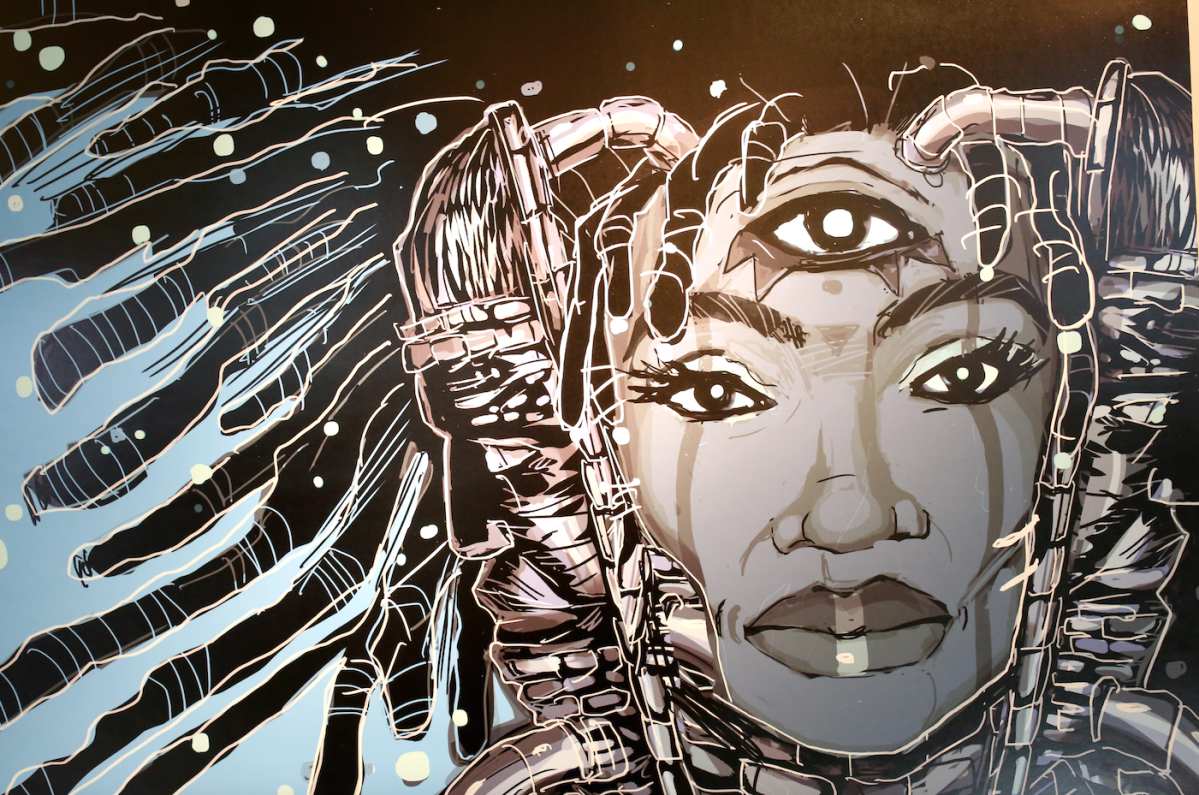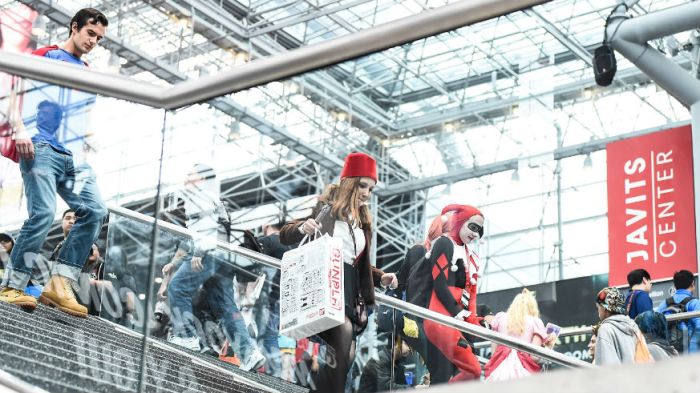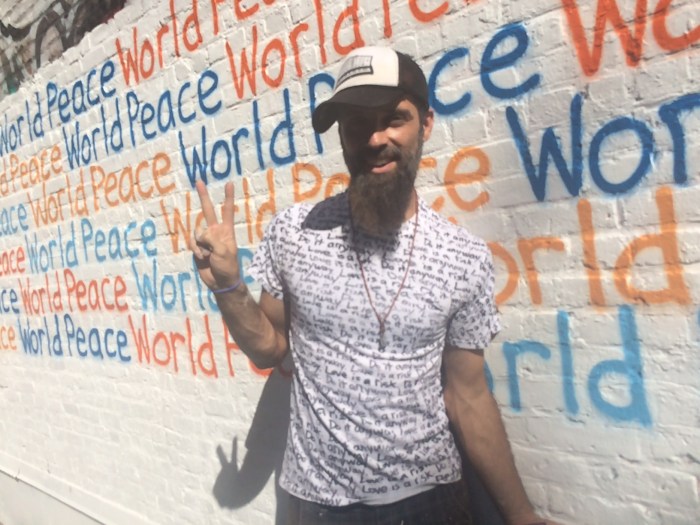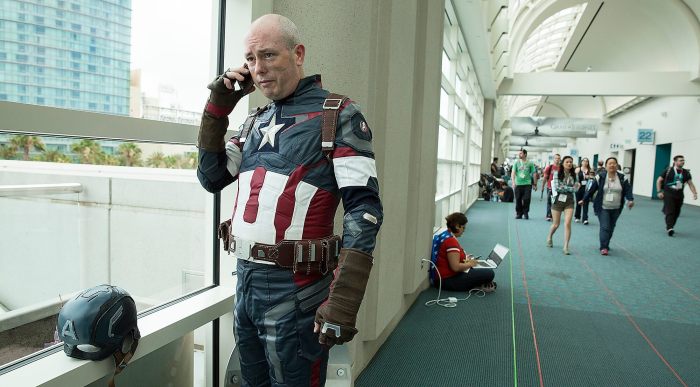The way John Jennings sees it, comics need more diverse makers —and more diverse characters.
How to make that happen? Pay more attention to the little guys, he said: the many, many independent comic-creators who are drawing and writing stories that represent America as it is.
“There’s a lot of diverse content in the independent comics,” Jennings told Metro. “Unfortunately, they don’t have the same power that Marvel has.”
Jennings — a Buffalo-based comic artist, activist and researcher on comics and race — is in Boston this week for a symposium on representation in the art form, to be held Thursday at Northeastern, called “Why Comix? Drawing the World you Want to See.” A selection of his works are also on display at the university’s Gallery 360.
RELATED: Comic book fan told he can’t change his name to ‘Superhero’ For many comic book consumers, and blockbuster viewers, the market is dominated by what Jennings called the “big two,” Marvel and D.C., the outlets behind “The Avengers” and “The Justice League.” These days, anyone can make comics, but the channels for putting them out for mainstream consumption are run by the “big two,” he said, and by distributors who have a “monopoly” on content and tend to pick titles they think will sell – meaning indie innovators often get left out of comic store shelves. Too often, that has led to white faces in the most popular titles and stereotype-driven characters of color, he said, meaning a big market for comics doesn’t have the idols it wants, and needs.
“Studies have shown that black kids, if they don’t see themselves as heroes in some fashion at a young age it starts to work against your self-esteem,” he said. “If you can’t see yourself reflected in that space, it’s a basically showing a person that they don’t matter or that they don’t exist.” RELATED: Priya’s Shakti: The magical comic book that takes on rape There have been changes to sci-fi and fantasy worth noting in comic books and on the big screen, he said. The most obvious: “Star Wars: The Force Awakens.” It’s a milestone, he said, that the two leads in the biggest movie of all time are a woman and an African-American man. “You look at something like Star Wars and people love them,” Jennings said, “But for the most part you haven’t seen anything like that.”
“For me it’s about creating role models that weren’t there before,” said Bruce Ployer, the campus curator for Northeastern who oversees gallery and exhibition spaces and helped bring Jennings to Boston. Artists have always used comics as a way to predict the future and what it might look like, Ployer said, and that’s what drives the field of Afrofuturism — black sci-fi and fantasy — a focus of Jennings’ and a major topic of Thursday’s event. “Culture will influence the future,” Ployer told Metro. “All cultures will influence the future, not just one.”
RELATED: Photos: The costumes of Comic Con Boston 2015
Bree Edwards, director of the Northeastern Center for the Arts, said she hopes the Thursday’s daylong dive into race and art can help make connections for young artists between comic books and graphic novels, and other forms of media that have been sources of empowerment. “I’m thinking about the hip-hop generation and how art and creativity can speak to that group,” Edwards said. “And comics, anybody can draw a comic. It might not be great, but it’s a great place to start.” The university is also hosting art and mentorship programs focused on comics — the next one is on Jan. 21 at the Northeastern Crossing facility on Tremont Street. Jennings told Metro he was excited to be part of another think-tank on race in comics this week in Boston, part of a growing wing of academia that has been studying class, race and gender in comic books. RELATED: 14 indies to watch this winter and spring
At the same time, Jennings has been working to stoke the market for artists of color. When he leaves Boston, he said, he’s headed to a pair of black comics festivals — one in Harlem on Saturday and another in San Francisco Sunday and Monday. Because, he said, diversity in comic books comes down to money, and to readers voting with their eyeballs.
“If [the comics industry] decide diversity in comics is not important anymore, they’re not going to fund it,” Jennings said. “But as long as people are making noise about it and these things are important to someone, that’s the audience. You have an audience.”
Boston hosting daylong meet-up on race in comics

Nicolaus Czarnecki/Metro

















